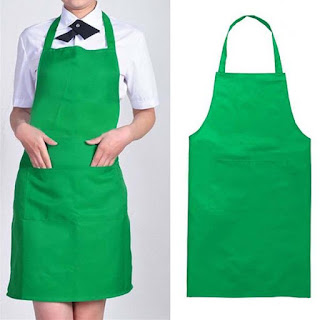We've likely completely had foodborne
ailment, yet except if we included a response inside a few hours of eating
something, we most likely didn't remember it as being food
contamination.
Foodborne disease (ordinarily
alluded to as food contamination) is regularly hard to distinguish. There is
normally no quick recognizable reason and manifestations commonly mirror
different diseases. Numerous foodborne sicknesses keep going
for a generally brief timeframe (prompting the misnomer of the "24 hour
influenza"). All things considered, okay speculate something you ate 3
days back
as making you become sick today? Doubtlessly you simply believe it to be this
season's cold virus. Moreover, the greater part of us don't go to the specialist
for a momentary disease, as we're only glad to be freed of what
upsets us. The outcome is that numerous foodborne sicknesses go undiscovered.
For instance, listeriosis (a
foodborne sickness) has as of late
been perceived as a genuine general medical issue in the United States. With a
brooding period thought to be as long as 3 weeks
and indications of fever, muscle
hurts, and some of the time sickness or the runs, a great many people portray
it as this season's flu virus. Nonetheless, it can turn into an intense
illness for sections of the populace.
With more
than 250 foodborne diseases of differing brooding periods,
you most likely won't have the option to decide if you have a foodborne
ailment. Be that as it may, an essential comprehension of sanitation will go
far in ensuring
you and your family.
Any food you purchase
has foodborne microscopic
organisms on it. These microorganisms are isolated into two gatherings: food
waste microscopic organisms and pathogenic
microbes. You can see and smell food decay microscopic organisms. The
microorganisms makes you intermittently discard
food since it looks as well as scents horrendous. Food deterioration microbes
for the most
part won't hurt you. They are only an admonition sign to not eat this food.
Pathogenic microorganisms are the
terrible
stuff. You can't see or smell them, however they will make you and your family
wiped out. They can frame on food in poisonous amounts
some time before deterioration microscopic organisms
show up. Fortunately you can shield yourself and your family from pathogenic
microscopic organisms by understanding
timeframe of realistic usability and the temperature goes in which microbes
increase.
All nourishments have a time
span of usability. Subordinate upon the sort of food
and its stockpiling, the timeframe of realistic
usability will fluctuate anyplace from a day to quite
a long while. Ready organic product will begin decaying inside a day or something like that.
Freeze the natural product before it decays and it can keep going for a year.
Leave meat on a counter at the correct temperature
for a few hours and the pathogenic microscopic organisms
will increase and make you wiped out. Freeze the meat when you bring it home
from the store and it will hold its quality for quite
a long time.
Pathogenic microscopic organisms increase
quickly in what is known as the risk zone. That zone is typically somewhere in the range of
40° and 140° F (4° and 60° C). A solitary pathogenic bacterium won't hurt you,
as your body's safe framework
will as a rule decimate the microscopic organisms. It's just when food is left
in the peril zone for an unseemly timeframe
that the pathogenic microorganisms will increase, overpower your body's
regular resistances and cause you to get
sick. Leave the meat referenced above on the counter and a solitary pathogenic bacterium will
duplicate to a huge number of microscopic organisms in 8 hours, all that
could possibly be needed to make you sick.
Store food beneath 40° in your cooler and
the bacterial development will fundamentally back
off. Freeze food and bacterial development will for the most part
stop. Cook food above 140° to 165° F and you will slaughter most pathogenic
microscopic organisms.

